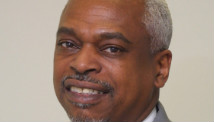AZAZ, Syria (Reuters) - Rebels battled on Thursday to seize an air base in northern Syria, part of a campaign to fight back against the air power that has given President Bashar al-Assad's forces free rein to bomb rebel-held towns.
More than 60,000 people have been killed in the 21-month-old uprising and civil war, the United Nations said this week, sharply raising the death toll estimate in a conflict that shows no sign of ending.
After dramatic advances over the second half of 2012, the rebels now hold wide swathes of territory in the north and east, but are limited in exerting control because they cannot protect towns and villages from Assad's helicopters and jets.
Hundreds of fighters from rebel groups were attempting to storm the Taftanaz air base, near the northern highway that links Syria's two main cities, Aleppo and the capital Damascus.
Rebels have been besieging air bases across the north in recent weeks, in the hope this will reduce the government's power to carry out air strikes and resupply loyalist-held areas.
A rebel fighter speaking from near the Taftanaz base overnight said the base's main sections were still in loyalist hands but insurgents had managed to infiltrate and destroy a helicopter and a fighter jet on the ground.
The northern rebel Idlib Coordination Committee said the rebels had detonated a car bomb inside the base.
The government's SANA news agency said the base had not fallen and that the military had "strongly confronted an attempt by the terrorists to attack the airport from several axes, inflicting heavy losses among them and destroying their weapons and munitions".
Rami Abdulrahman, head of the opposition-aligned Syrian Observatory for Human Rights which monitors the conflict from Britain, said as many as 800 fighters were involved in the assault, including Islamists from Jabhat al-Nusra, a powerful group that Washington considers terrorists.
Taftanaz is mainly a helicopter base, used for missions to resupply army positions in the north, many of which are cut off by road because of rebel gains, as well as for dropping crude "barrel bombs" of explosives on rebel-controlled areas.
"WHAT IS THE FAULT OF THE CHILDREN?"
Near Minakh, another northern air base that rebels have surrounded, government forces have retaliated by regularly shelling and bombing nearby towns.
In the town of Azaz, where the bombardment has become a near nightly occurrence, shells hit a family house overnight. Zeinab Hammadi said her two wounded daughters, aged 10 and 12, had been rushed across the border to Turkey, one with her brain exposed.
"We were sleeping and it just landed on us in the blink of an eye," she said, weeping as she surveyed the damage.
Family members tried to salvage possessions from the wreckage, men lifting out furniture and children carrying out their belongings in tubs.
"He (Assad) wants revenge against the people," said Abu Hassan, 33, working at a garage near the destroyed house. "What is the fault of the children? Are they the ones fighting?"
Opposition activists said warplanes struck a residential building in another rebel-held northern town, Hayyan, killing at least eight civilians.
Video footage showed men carrying dismembered bodies of children and dozens of people searching for victims in the rubble of the destroyed building, shouting "God is greatest". The provenance of the video could not be independently confirmed.
In addition to their tenuous grip on the north, the rebels also hold a crescent of suburbs on the edge of Damascus, which have come under bombardment by government forces that control the center of the capital.
On Wednesday, according to opposition activists, dozens of people were incinerated in an inferno caused by an air strike on a petrol station in a Damascus suburb where residents were lining up for precious fuel.
The civil war in Syria has become the longest and bloodiest of the conflicts that rose out of uprisings across the Arab world in the past two years.
Assad's family has ruled for 42 years since his father seized power in a coup. The war pits rebels, mainly from the Sunni Muslim majority, against a government supported by members of Assad's Shi'ite-derived Alawite minority sect and some members of other minorities who fear revenge if he falls.
The West, most Sunni-ruled Arab states and Turkey have called for Assad to leave power. He is supported by Russia and Shi'ite Iran.
(Additional reporting by Khaled Yacoub Oweis in Amman and Dominic Evans in Beirut; Writing by Peter Graff; Editing by Ruth Pitchford)

